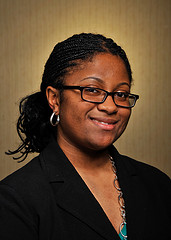I have been working at the Avery Research Center for about a month now and I have been keeping busy and productive. My progress in the archives and social media are detailed below.
Archives
I have processed and created the finding aids for two collections, the Humane and Friendly Society and the Lecque Family Papers.
The abstract for the Humane and Friendly Society reads:
The Humane and Friendly Society was a benevolent society of free African American men in Charleston, South Carolina. The Society served as a way to provide for widows, orphaned children, a burial place for its members, and it also arranged apprenticeships and educational opportunities for African American men.
The collection consists of administrative materials of the Humane and Friendly Society including meeting minutes, correspondence, and membership lists. Topics of discussion include raising membership dues, care of the graveyard, and the rules of being a member. The record journal notes who paid dues, how long they have been a member of the Society, and where members are buried in Charleston. The plot records include completed and blank application forms.
Before I processed this collection I knew that there were organizations created by African-Americans that assisted the community in many aspects, but this was my first look at a society that was dedicated to helping to bury individuals. Working with this collection allowed me to see how deep racism is; that even in death African-Americans and Caucasians could not be next to each other. One of the major issues of concerns within the meeting minutes was the cost of membership in relation to the upkeep of the Humane and Friendly Society cemetery (which is located in the Magnolia Complex).
The other collection that I worked on was the Lecque Family Papers. Working with a family collection as opposed to an organizational collection presents different challenges and context in terms of the arrangement and description. Since I am not from the area I did not know who the Lecque family was and why their collection would be here at Avery, but I read the newspaper clippings I began to see the role that the family had in establishing the Liberty Hill community in North Charleston. Most of the collection delves into the history of Liberty Hill and St. Peters’ African Methodist Episcopal (A.M.E.) Church, but the collection also consists of genealogical information, legal documents, funeral programs, and photographs of the Lecque family. Some of the photos were framed in oval sized frames and Ms. Georgette Mayo and I had to decide if we wanted to take the photos out of the frame or keep it in there. This was a preservation decision, we were not sure if we took the pictures out of the frame if the photo(s) would become damaged. Ultimately, we decided that the photos should remain in the frames. In order to obtain a better understanding of the family structure I did genealogical work on the Lecque family using Ancestry.com at the South Carolina Reading Room at the Charleston County Public Library. From there I used census records, the social security index, and draft cards to compile a list of birth and death dates and marriage information.
The collection that I am working on presently is the Prince Hall affiliated Order of the Eastern Star Chapter No. 41 Papers. This collection has been great to work on as I am interested in organizations that women are a part of and kinds of work that they do. The collection consists of administrative records, financial materials, records relating to the O.E.S. rituals and ceremonies, as well as material documenting the activities of Prince Hall Lodge No. 46 (the Charleston Lodge). I will post a full commentary on it when completed.
Social Media
The other activity that has been keeping me busy has been increasing Avery’s social media presence. I have been maintaining the Keep Your Eyes on the Prize blog well as updating Avery’s Facebook page on a daily basis with information about African-American issues, concerns, resources, etc. on a local and national level. From my efforts I have gained more “likes” on the Avery page and made connections with relevant people who are interested in African-American history and culture, historic preservation organizations, and cultural heritage societies locally, South Carolina, and nationally. Through these connections Avery obtains a broader network of supporters and also increases the visibility of the archival collections and encourages people to use our resources. In addition, we promote our programs and staff activities.
Ms. Mayo and I attended a webinar (an online workshop at the College of Charleston’s Addlestone Library) regarding the creation of interactive subject guides (a guide created by archivists and librarians that compiles relevant information about a certain subject/theme for researchers). Historically subject guides were static (i.e. text only), but now with the diverse modes of transmitting information this needs to be changed. The presentation stressed the importance of video, audio, and visual materials as well as including blogs, news feeds, and student created content in these subject guides. I am investigating the possibilities of using these types of subject guides at the Avery Research Center.
A couple of examples of interactive subject guides can be found here:
The presentation can be found online here
If you have any thoughts about what topics and themes you would want to see done as subject guides please comment below.









Recent Comments